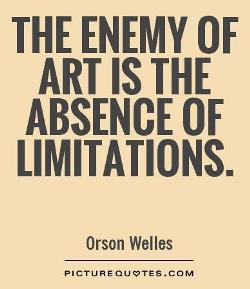 It’s been a while, True Believers. My apologies for taking an unintentional holiday hiatus.
It’s been a while, True Believers. My apologies for taking an unintentional holiday hiatus.
During that time you may have heard about a little movie called Star Wars: The Last Jedi. I saw it opening weekend and loved it. Unfortunately, not everyone did. The Internet was lit on fire. Battle lines were drawn. It had a 90-plus percent rating from critics on Rotten Tomatoes, but the user score was in the fifties. Fans either loved it or hated it. It’s the most polarizing Star Wars film ever released. For many it wasn’t the film they were looking for.
I was shocked, especially when I heard why its detractors didn’t like it. With this blog, I wanted to address the major criticisms because I think they’re unfounded. (Warning: This will include spoilers!)
So, without further ado…
- Rey’s Parents
 Ever since The Force Awakens opened in 2015, fans have theorized that the new character, Rey (played by Daisy Ridley), was as powerful as she was with the Force despite a lack of training because she had a special lineage. Theories included her being Obi-Wan Kenobi’s granddaughter, Han and Leia’s daughter, and (my personal favorite) Luke Skywalker’s daughter.
Ever since The Force Awakens opened in 2015, fans have theorized that the new character, Rey (played by Daisy Ridley), was as powerful as she was with the Force despite a lack of training because she had a special lineage. Theories included her being Obi-Wan Kenobi’s granddaughter, Han and Leia’s daughter, and (my personal favorite) Luke Skywalker’s daughter.
Guess what? Her parents are nobodies.
Yep. They were losers who sold her for drinking money. At least that’s what the villainous Kylo Ren said. It could be a lie, but I hope it isn’t. It’s far more interesting this way. It makes the Force magical and mystical again. Plus, it shows that greatness can come from ordinary places and that people don’t need a special heritage to be extraordinary.
The problem here, as is common with several of these complaints, is fans were so in love with the movies they’d written in their own heads that they couldn’t accept anything else. Some fans have this crazy idea that if they didn’t get what they expected, the film is bad. So, even if they’re given something better, they reject it.
2. The Mysterious Snoke
 Supreme Leader Snoke is an immensely powerful Dark Force master who leads the First Order, which is he Galactic Empire reborn. He was only seen as a hologram in The Force Awakens. We knew nothing about him other than snippets here and there (and most of those were in The Last Jedi). Like with Rey’s parents, fan theories ran wild about him. They expected to have their questions answered in this film.
Supreme Leader Snoke is an immensely powerful Dark Force master who leads the First Order, which is he Galactic Empire reborn. He was only seen as a hologram in The Force Awakens. We knew nothing about him other than snippets here and there (and most of those were in The Last Jedi). Like with Rey’s parents, fan theories ran wild about him. They expected to have their questions answered in this film.
Then Kylo killed him. The end.
Fans lost their minds. They decried their unanswered questions. They called it a wasted opportunity. To which I say, “Before the prequels, did you ever want to know the Emperor’s backstory? I doubt it. He was there to serve as an irredeemable villain to help propel the other characters’ stories. Snoke serves the same purpose” Again, fans were too married to their theories and expectations.
3. They Ruined Luke Skywalker and then Killed Him!
/cdn.vox-cdn.com/uploads/chorus_image/image/56453381/luke_skywalker_7.0.jpg) In this film, Luke Skywalker, the childhood hero of a generation, is a bitter and cynical old man who has cut himself off from the Force. During a flashback we see he had a fleeting moment of weakness and nearly killed Ben Solo (aka Kylo Ren) when the villain was his student. He refuses to help Rey or the Resistance because he blames himself for Ben turning to the Dark Side and helping the First Order to rise.
In this film, Luke Skywalker, the childhood hero of a generation, is a bitter and cynical old man who has cut himself off from the Force. During a flashback we see he had a fleeting moment of weakness and nearly killed Ben Solo (aka Kylo Ren) when the villain was his student. He refuses to help Rey or the Resistance because he blames himself for Ben turning to the Dark Side and helping the First Order to rise.
Many fans said this ruined their childhoods. Their hero was gone. He had lost his happy ending from Return of the Jedi. They probably even preferred the old Expanded Universe (now Legends) version of Luke who is overpowered and perfect.
I’m sorry, but the new film version is more interesting. It makes sense that he would do this. Plus, by the end, he becomes that legendary hero again, but not how you would expect him to. It borders on being a meta-commentary, now that I think about it. Luke uses the Force to astral-project himself across the galaxy to help the Resistance and make Kylo Ren look like a chump. But it strains him so badly he “dies” (i.e. is raptured to the Force like Obi-Wan and Yoda). His story espouses some of the richest and most interesting themes I’ve seen in a Star Wars film in a long time. It’s far from a disservice to the character.
4. So-Called Social Justice Themes.
This has been both criticized and commended. The problem is I think both sides are reading into things. I’ll tackle the most frequent examples:
a. Vice Admiral Holdo and Feminism
 Some call this a third-wave feminism film because, as they see it, all the men are weak and all the women are strong. Their go-to example is the new character Vice Admiral Holdo (played by Laura Dern). For whatever reason, she refuses to tell hotheaded flyboy Poe Dameron her plan to help the Resistance escape the First Order, often berating him for stepping out of line. Poe leads a mutiny because of this, although it’s shut down by General Leia after she awakens from a coma.
Some call this a third-wave feminism film because, as they see it, all the men are weak and all the women are strong. Their go-to example is the new character Vice Admiral Holdo (played by Laura Dern). For whatever reason, she refuses to tell hotheaded flyboy Poe Dameron her plan to help the Resistance escape the First Order, often berating him for stepping out of line. Poe leads a mutiny because of this, although it’s shut down by General Leia after she awakens from a coma.
This was seen as a woman in power emasculating a man for being angry and pushy among other stereotypes third wave feminists throw at men. I didn’t think that at all. Call me naïve, but all I saw was a conflict between an older, cool-headed leader and an impulsive youth. I didn’t care that the person in authority was a woman. Given their personalities, it was natural for them to clash. This is writing drama 101. The problem is no reason is given for her to keep her plan a secret, which gives viewers leeway to read into it. That’s a story problem, though, not an ideological one.
Canto Bight Casino and Decrying the Rich
 Finn and a new character named Rose (more on her later) go on a side quest to a casino planet to locate a computer hacker to help the Resistance. The place is the Mos Eisley cantina meets Las Vegas. There’s gambling, drunkenness, animal exploitation, and slavery. The money that flows into this place was garnered from arms dealing. In fact, the merchants on this planet sold weapons to both the Resistance and the First Order, essentially fueling the war to maintain their market.
Finn and a new character named Rose (more on her later) go on a side quest to a casino planet to locate a computer hacker to help the Resistance. The place is the Mos Eisley cantina meets Las Vegas. There’s gambling, drunkenness, animal exploitation, and slavery. The money that flows into this place was garnered from arms dealing. In fact, the merchants on this planet sold weapons to both the Resistance and the First Order, essentially fueling the war to maintain their market.
Some saw this an SJW commentary on the “one-percent,” who are exploitative and unscrupulous. In other words, all rich people are evil. I, on the other hand, didn’t get that message. What I got was, “War profiteering through arms dealing is wrong, especially when they sell to both sides.” Capitalism isn’t inherently evil, but it can be used for evil purposes, as seen here.
c. Rose Tico and Diversity
 Rose is Asian. Finn is black. Poe is Hispanic. Some have sarcastically called these characters “diversity hires” or said it was about time Star Wars didn’t have all white characters (to which I say, did you forget about Lando Calrissian?).
Rose is Asian. Finn is black. Poe is Hispanic. Some have sarcastically called these characters “diversity hires” or said it was about time Star Wars didn’t have all white characters (to which I say, did you forget about Lando Calrissian?).
Guess what? I don’t care. A character’s skin color doesn’t matter to me. I barely acknowledged their ethnicities when I saw the film. They were just cool new characters. Unless viewers are looking for diversity because they think they can only relate to characters who look like them, I doubt anyone cares. This isn’t Star Trek where the diversity was meant to be a statement about humanity of the future evolving past prejudices. Even then, it was only brought up when it was necessary. In these new Star Wars films, nobody makes a big deal about the characters’ ethnicities. Only fans do.
There you have it. My rebuttals to the major complaints against The Last Jedi. That isn’t to say it’s a perfect film. I do have some story issues with it, but they’re minor by comparison to the good stuff. This is a challenging film, so I can understand why some people don’t like it, but I think that’s what makes it as good as it is.
What do you think? Do you agree or disagree with me? Why or why not? What’d you think of The Last Jedi?






/cdn.vox-cdn.com/uploads/chorus_image/image/56453381/luke_skywalker_7.0.jpg)







